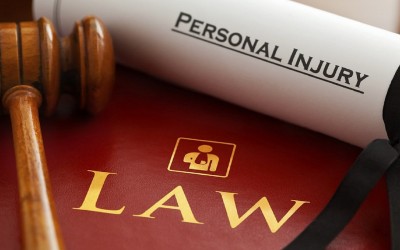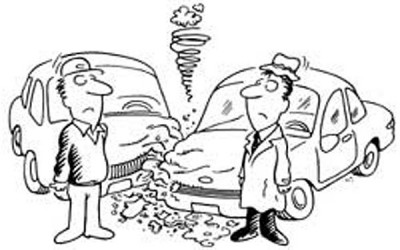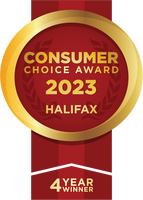Holiday Parties, Host Liability and Drunk Driving Risks

It’s the most wonderful time of year, which means holiday parties are in full swing. Whether you are attending a social gathering or having a few people over, you or your guests may want to have a few drinks. But when the party is over, everyone has to go home. And getting home safely can be a problem.
Impaired driving is one of the most common factors contributing to serious road crashes in Canada. According to a national survey by Mothers Against Drunk Driving (MADD) Canada, 1 in 10 drivers thinks it isn’t a big deal to drive after consuming a few drinks. Some drivers will even insist they’re okay to drive because they don’t feel impaired or they don’t have to drive far. If you plan to host a holiday event at your home, it’s important to be aware of your legal responsibilities.
Drunk Driving Statistics
Most people know that drinking and driving don’t mix, but unfortunately, many still do it. Despite years of public messaging about the dangers of drinking and driving, Canada ranks number 1 among 19 developed countries for the most roadway deaths linked to alcohol impairment, according to a recent study by the Centre for Disease Control (CDC).
Every year, hundreds of people are killed, and tens of thousands are injured in impaired driving crashes, affecting not only those involved in the accident but also all of their families and friends (MADD Canada). Even though Canada has some of the strongest laws in the world for alcohol-related impaired driving, statistics show that it remains one of the leading safety concerns throughout the province and the nation.
- Every day, on average, 4 Canadians are killed, and 175 are injured in impairment-related crashes. (MADD Canada)
- Approximately one-in-five fatal collisions were reported to have alcohol involvement as a contributing factor. (National Collision Database)
- The number of people who admitted to driving a vehicle despite believing they were over the legal BAC limit at the time increased by 23.9% in 2021. (Traffic Injury Research Foundation)
- 16% of collisions resulting in serious injury or death involved a drunk driver. (Canadian Council of Motor Transport Administrators)
- With an estimated 1,500 fatalities every year, drunk driving is Canada’s leading cause of criminal death. (Canadian Council of Motor Transport Administrators)
- 60% of collisions involving a drunk driver were single-vehicle collisions. (Transport Canada)
In an effort to reduce incidents of drunk driving, Nova Scotia has penalties for drivers with a blood alcohol content (BAC) of 0.05 or higher. Even if you consumed alcohol but are under 0.05, you could still be charged with impairment. Everyone charged with impaired driving must complete an addiction assessment and education program before they can be eligible to get their driver’s license reinstated.
Social Host Liability for Drunk Driving Guests
Anyone involved in serving alcohol can potentially be held liable for damages or injuries where alcohol is deemed to be a contributing factor. Bartenders and other licensed establishments have a clear legal duty to stop serving alcohol to patrons that appear intoxicated and to ensure they get home safely. For individuals who throw private parties, the law isn’t so clear. However, the risk of legal liability exists, and the scope of a social host’s legal responsibilities continues to evolve.
Social host liability refers to the legal responsibility for hosts of private social gatherings to ensure their guests do not experience harm after leaving the premises. Generally, the law in Canada determines on a case-by-case basis whether social hosts have breached their duty of care to ensure the safety of their guests. The test for a duty of care breach centers around two main issues: foreseeability and proximity.
Foreseeability
A key factor in determining foreseeability is if the host knew, or ought to have known, that their guest was intoxicated or could reasonably foresee the guest had plans to engage in a dangerous activity (e.g., drinking and driving). If the host had such knowledge and failed to act, the guest or an injured third party might have a claim.
Proximity / Something More
Proximity focuses on the relationship between the guest and the host. There also has to be “something more” in the facts of the case that outline the host’s duty to act. Relevant facts include whether the host supplied the alcohol, the number of guests, and whether risky behaviour was occurring, such as underage drinking.
While the scope of social host liability may not be fully established in Canada, common sense dictates that social hosts should take reasonable steps to ensure their guests do not create a danger for themselves, their families, or members of the public.
What Can a Social Host Do?
There’s nothing wrong with hosting a get-together to celebrate the season. You want your guests to have a good time, but you also want them to get home safe. As a social host, you should be aware of best practices for serving alcohol in your home and what your liability is.
The Correctional Service of Canada (CSC) provides several recommendations to help private party hosts monitor and supervise the service and consumption of alcohol:
- Don’t drink or limit your alcohol consumption so you can be aware of how much your guests are drinking.
- Only invite people you know. It is much easier to track changes in the behaviour of guests you know. Inviting strangers increases the risk.
- If possible, avoid having guests serve themselves. Designate non-drinkers to monitor and supervise the serving of alcohol.
- Do not make drinking the focus of the party. Serve lots of food and have plenty of non-alcoholic choices.
- One hour before you anticipate guests will leave, stop serving alcohol and start serving coffee, tea, or water.
- Greet all guests on arrival and departure, taking the opportunity to assess their condition.
- If a guest is visibly intoxicated and refuses to hand over the car keys or spend the night at your house, call the police. It may seem drastic, but it is far better than the consequences of driving under the influence.
In the event that you need to file a claim against someone else for neglecting to fulfill their social host duties, or you were involved in an accident with someone that had attended a private party, you may have options to recover compensation for your injuries. A car accident lawyer (also called a personal injury lawyer or insurance claim lawyer) can review your case and advise you on your legal options for bringing a claim against the individual(s) responsible for your injuries.
How to Prevent Drunk Driving
Any time you have people over to your home, you are responsible for making sure they get home safe. Part of that responsibility means preventing your guests from drinking and driving. Ultimately, the safe limit for consuming alcohol and getting behind the wheel of a vehicle is—none. Even one drink can affect someone’s judgement, concentration, and reaction time when driving. As a party host, there are some simple precautions you can take to make sure your guests stay safe.
- When guests arrive, ask for their travel plans and the contact information of the person driving (if someone other than the guest).
- Be prepared to have intoxicated guests stay at your house.
- Collect keys from guests when they arrive and store them in a safe location. Only return keys to a designated driver.
- Offer to help guests back to their cars the next day.
- Order a rideshare service (e.g., Uber) for the guest using an app that tracks their location and provides contact information for the driver.
If you are out on the road and spot what you suspect is a drunk driver, call 911 and alert the police. Give them as many details as possible, such as license plate number, the vehicle make, model, and colour, as well as the direction the car is traveling.






















